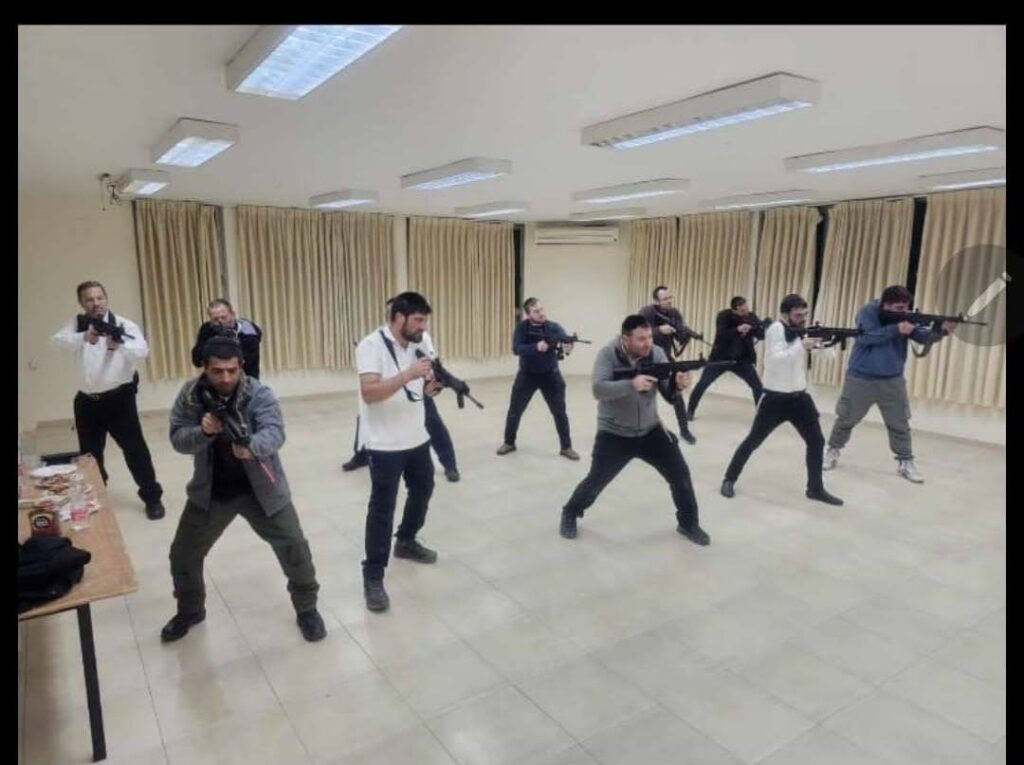Shuls should bar individual mispalelim from bringing guns to minyanim unless they are part of an organized, trained security team, according to new guidance released this week by the Secure Community Network (SCN), the security arm of the Jewish Federations of North America and the Conference of Presidents of Major American Jewish Organizations.
The report comes as Jewish communities face heightened threats and as debates over firearms in shuls intensify. Michael Masters, SCN’s national director and CEO, told JNS that “allowing individuals in an unstructured, unplanned way to carry guns in a house of worship is simply not a viable or responsible option given the threat environment or the potential impacts of doing that.”
Instead, SCN is urging congregations to formalize volunteer security teams — with clear chains of command, defined roles, and training in threat recognition, crisis response and de-escalation — coordinated with law enforcement and backed by written policies. “Far too few” shuls have what Masters called “a thoroughly vetted, well-thought-out gun policy.”
The report stakes out a position in a debate that has quietly divided Jewish institutions: whether armed mispalelim deter attacks or risk turning moments of crisis into chaos. Millions of Americans — including many Jewish families — have purchased firearms in recent years. But SCN warns that unstructured gun carrying could expose synagogues to legal liability and undermine carefully crafted security protocols.
The recommendations:
- Limit armed presence to vetted volunteer teams.
- Clarify when and how force can be used.
- Train members on situational awareness and de-escalation.
- Establish policies for other weapons, including tasers and sprays.
Jewish institutions have poured money into security since the deadly Pittsburgh synagogue shooting in 2018, with dramatic increases in patrols, coordination with police, and infrastructure upgrades. Yomim Noraim tefillos are now among the most heavily secured times of the year, Masters noted — though he acknowledged that smaller shuls often struggle with fewer resources.
“We are investing more as a community, nationally and locally, in security than we ever have before,” he said. “But the responsibility to do this right has never been higher.”
(YWN World Headquarters – NYC)












4 Responses
This seems to be from a group that has commercial interest in the process: We are investing (sic!) more as a community, nationally and locally, in security than we ever have before, so their advice may be partly self-serving. Especially for smaller shuls, where there is no organized response, that should rely on volunteers.
The SCN is NOT representative of community security groups, as much as they may claim to be. Many see their mentality as an “us vs them” where only those “blessed by the Rabbi” (i.e. instructor) “earn the right” to defend themselves. Some of the concerns they bring are valid, but there are many, many solutions besides for recklessly disarming those who are often more well-trained than poorly-funded security teams or even law enforcement.
There was a shul in Germany that didn’t feel secure so on Yom Kippur they kept their doors locked, a shooter came and found the door locked and that kept them safe. So perhaps instead of forming teams and training to get into a shootout with a maniac with an AR 15 who doesn’t mind dying it would be much easier and effective for shuls that don’t feel secure to just keep their doors locked. But that would take all the fun out of training with and carrying guns in shul.
NotPoshut, I don’t know why you seem so impressed with the AR-15. It’s no more dangerous than a handgun.
And no, locking the door is not an answer. When a yid comes to daven, especially on Yom Kippur, he should not find the shul locked up against him. A shul has to be accessible for the vast majority who are there to daven. Only when someone starts behaving in a threatening way are defensive measures justified, and by that time he’s usually inside.